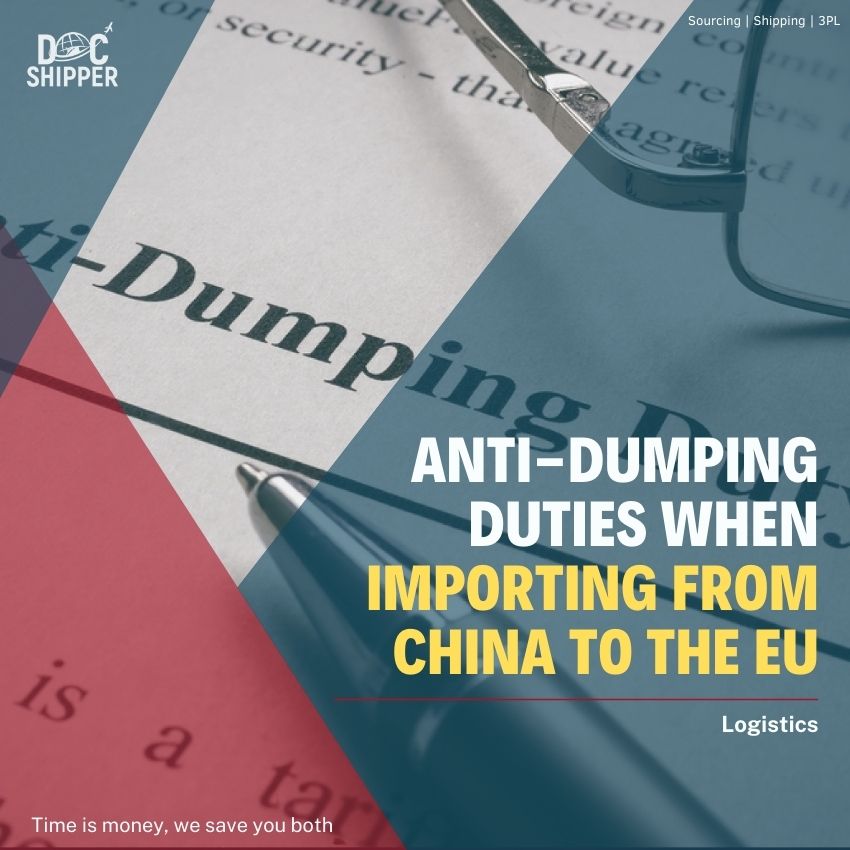In the complex landscape of international trade, anti-dumping duties play a pivotal role in ensuring fair competition and protecting local industries from unfair pricing practices. As an importer in the European Union (EU), understanding and navigating these regulations is crucial to maintaining compliance and optimizing your business operations. This article delves into the essentials of anti-dumping duties and provides strategic insights to help you adeptly manage these regulations.
Understanding Anti-Dumping Duties: A Primer for Importers
Anti-dumping duties are trade protection measures imposed by a country to shield its domestic industries from foreign companies selling goods at an unfairly low price. In the EU, these duties are enforced when an investigation reveals that a product is being imported at less than its normal value, causing material injury to the Union’s industry. Such measures are governed by a complex legal framework, primarily regulated by the European Commission.
For importers, understanding the scope and application of anti-dumping duties is essential. These duties can significantly impact the cost structure of imported goods, making it imperative to stay informed about ongoing investigations and the potential imposition of new duties. The European Commission regularly publishes notices and decisions in the Official Journal of the European Union, providing critical updates that importers must monitor.
Additionally, the calculation of anti-dumping duties involves a detailed analysis of several factors, including the export price, the normal value of the product in the exporting country, and the injury margin. Importers must be adept at interpreting these calculations to assess the potential financial implications on their business. Engaging with trade compliance experts or legal advisors can provide valuable insights and help mitigate risks associated with anti-dumping duties.
Key Strategies to Navigate EU Anti-Dumping Regulations
To effectively navigate EU anti-dumping regulations, importers must adopt a proactive approach. One of the key strategies is to conduct thorough due diligence on suppliers and the products being imported. Understanding the pricing practices of your suppliers and ensuring they comply with fair trade principles can help preemptively address potential anti-dumping concerns. This proactive assessment can also aid in identifying alternative suppliers or markets that may not be subject to such duties.
Another crucial strategy is to engage in continuous monitoring and compliance. Staying updated with the European Commission’s investigations, provisional measures, and final decisions is vital. Importers should leverage tools and resources such as trade databases, legal advisories, and industry associations to remain informed. Regularly reviewing and updating your compliance protocols can help ensure that your import practices align with the latest regulatory requirements.
Furthermore, importers can explore legal avenues to challenge or seek exemptions from anti-dumping duties. The EU provides mechanisms for interested parties to submit evidence and arguments during the investigation process. Engaging with legal experts who specialize in trade law can facilitate the preparation of robust submissions, potentially leading to favorable outcomes. Additionally, importers can consider applying for refunds or duty suspensions if they can demonstrate that the conditions leading to the imposition of duties have changed or no longer exist.
Navigating the intricacies of EU anti-dumping duties requires a comprehensive understanding and a strategic approach. By staying informed, conducting diligent supplier assessments, and leveraging legal mechanisms, importers can effectively manage the challenges posed by these regulations. Ultimately, a proactive and informed stance can not only ensure compliance but also contribute to the sustainable growth and competitiveness of your business in the dynamic landscape of international trade.
